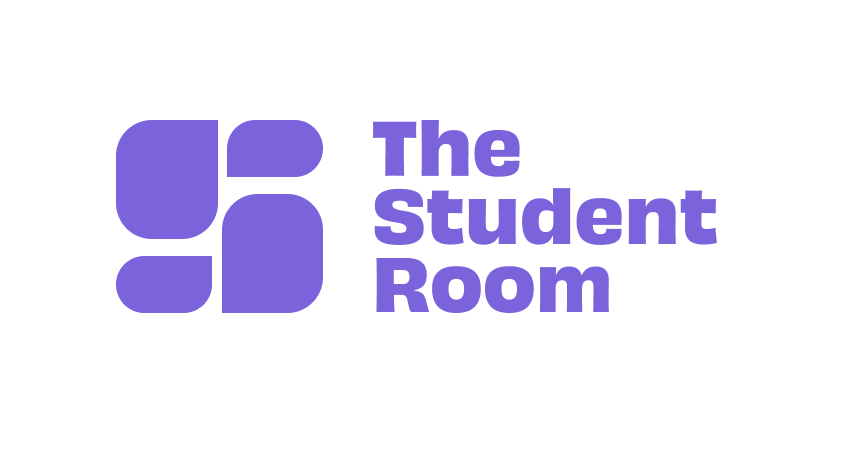Students are back for a new school year, which means we are now in prime time for 2022 applicant recruitment. This blog looks at early engagement, subject trends, messaging and how to get the most from your open days.
How early should you engage pre-app students?
Although the key window for university decision-making is in Year 13, some schools start preparing students as early as Year 10. Lockdowns have reduced students’ access to advice in schools, so brand building with younger audiences is more important than ever. Some schools are better at preparing their students than others:
“I haven’t been able to meet with my careers teacher as much as I would have liked”
Supplementing school and college outreach with a robust digital strategy will future-proof your applications.
Year 9 to 10 – spark their interest
Parents or teachers may encourage Year 9 students to consider which GCSE subjects will support their long-term education or career goals (if they have any). For example, students who want to become vets might be steered towards separate sciences at GCSE.
This Year 10 thread shows how early some students are thinking about their careers:
“In the future I want to have a career in finance.”
“i want to be a doctor, which is probably a far off dream but i’m going to try my hardest.”
“I would love to do Acting and Screenwriter if I cannot do that then Psychologist“
Year 11 – broaden their options
In Year 11, students are mainly focused on studying for their GCSEs. Assuming no further lockdowns, this cohort will be the first in three years to actually sit the exams.
Year 11s also need to choose their A level, BTEC or IBs, so this is a great time to let them know about interesting degrees or career pathways they may not have considered. For example, they probably know they can study History, but they may not have considered Archaeology.
“I want to do bio, psychology and maths at A level and then a psychology related degree”
“After this year I’d like to study Maths, Economics, Psychology and Chemistry (I’m thinking about Geography but not sure yet I’ll see once I do my next set of mocks).”
“i hope to do bio chem psychology at a level in order to study medicine at uni, …if not medicine then geopolitics really interests me!!”
Year 12 – engage the high achievers
At the moment, our Year 12s are mainly concerned with sharing their GCSE results, starting college or sixth form, A level choices and how the ongoing Covid-19 situation will affect their lives. However, students considering more competitive courses or subjects like Medicine are discussing university now, so it’s a great time to target high achievers. Popular threads include:
- UCAT (formerly UKCAT) 2022 entry discussions megathread
- MEGATHREAD – The “Which Medical School Should I Apply To?”
- LNAT*
*The University of Law’s presence on the LNAT law thread is part of their brand partnership with The Student Room. By placing their branding in strategic locations they maximise exposure with a highly targeted and relevant audience.
There are already plenty of examples of Year 12 students discussing universities, courses and their future careers on our threads:
“I hope to pursue something I enjoy in a Russell Group University.”
“I’d love to be a lawyer, not sure what I want to specialise in”
“I would like to do something relating to cs but right now it seems like a software engineer would be particularly interesting as I’m enjoying coding…here’s my current top 5 [unis]: Cambridge, Imperial, UCL, Southampton, Birmingham…I want to study Computer Science.”
Year 13 – empower them to make decisions
The new Year 13s were in their GCSE year when the pandemic hit and were the first year group not to sit the exams. A lot of 2022 applicants on our forums say they are feeling unprepared and insecure about sitting A levels and the transition to university. They are also likely to be concerned about ‘grade inflation’ during the pandemic if normal exams go ahead in 2022.
With less than a month to go before the early October deadline, a lot of Year 13s are congregating in our Medicine and Oxbridge forums.
The main tests that influence admissions are also coming up, including the UCAT, BMAT and LNAT, which are key concerns for a lot of students in the early application cycle.
“Would you say your official mocks were harder than the real exam?”
At this stage, it is mainly the October deadline applicants who are discussing personal statements, but there are signs that students looking to meet the January UCAS deadline are also starting to research the application process. There is also chatter about booking onto open days, with members of the community asking questions and seeking advice.
There will be some concern from this age group about the number of deferrals given out to students last year meaning that university courses may be highly competitive.
Ever year, Year 13s start to panic about the January deadline during the Christmas break. Since they do not have access to school advice at this time, The Student Room is a key source of information and support.
Which subjects are likely to be popular?
We surveyed 2022 entry respondents in March 2021 and 18% said covid-19 had impacted their subject choices. These applicants are far more likely to choose degree subjects based on employability outcomes; in fact, the number of 2022 applicants who are concerned about getting a graduate job has doubled since the pandemic.
Looking at the growth subjects for 2021 A Level entries compared to 2020 the largest growth was seen in the following subjects:
- Geography: 35,268 (+16.8%)
- Law: 13,519 (+15.4%)
- Computing: 13,829 (+11.3%)
- Psychology: 71,235 (+9.2%)
- Sociology: 42,091 (+7.9%)
- Biology: 70,055 (+7.6%)
- Physics: 40,741 (+7.4%)
- Chemistry: 59,978 (+6.9%)
- Economics: 33,546 (+6.9%)
- Business Studies: 38,546 (+6.5%)
2021 GCSE entries also shed light on the growth subjects for the 2023 cohort. The subjects with the largest percentage growth compared with 2020 were:
- Spanish: 114,795 (+4.7%)
- Geography: 281,741 (+4.2%)
- Physics: 175,371 (+4%)
- Chemistry: 176,950 (+3.9%)
- Business Studies: 102,542 (+3.8%)
- Biology: 184,008 (+3.3%)
- English Literature: 615,669 (+2.6%)
- Art and Design subjects: 210,091 (+2.6%)
- Science Double Award: 896138 (+2%)
- History: 294,807 (+0.9%)
Again, we’re seeing a significant rise in the number of students taking Geography in both A Level and GCSE. This may suggest an increased interest in environmental issues, so degrees in related fields may be more popular for 2023 applicants.
What should you include in messaging?
Our recent research has consistently shown that the pandemic has had a detrimental effect on 2022 applicants’ mental health and education. In March, their top concerns were: motivating themselves to work, catching up on lost teaching time and the impact of disrupted education on their grades.
In the application last cycle, and in Clearing, we saw a significant shift in messaging from short, snappy copy to more emotive language which emphasizes human connection. 2022 applicants have had a tough journey and they want universities to show understanding and support. Think about the gut and emotional responses which drive applicant decision-making. What are they afraid of?
A lot of student concerns centre around social inclusion and they may be asking themselves questions like: Will I fit in? What will it feel like when I get to university? Will I be good enough? Will the work be too hard for me? Anxiety about a sense of belonging may be particularly true for applicants in the LGBTQ+ community or minority groups – so make sure messaging is inclusive and, where possible, signpost these students to relevant peer groups.
Although schools and colleges can be great at helping with applications, personal statements, careers advice, subject choices and encouraging students to go to open days, they probably won’t tell students about university life. Universities can plug this gap by giving applicants an experience of university life (e.g. open days, connecting them with current students, video content).
Other key topics students want to hear about are:
- Managing money and paying for their studies: they want clear guidance on student finance, budgeting, scholarships and bursaries
“I’ve found researching universities to be quite frustrating, it’s really difficult to keep track of what scholarships are on offer and where you can get bursaries.”
- Employability: they want universities to connect with their career aspirations – i.e. how will going to your university help them achieve their goals? (these might be landing a dream job, contributing to pioneering research, or learning from leaders in their chosen field)?
- Subject-specific information: they want taster lectures, as well as detailed information about modules and assessments. They also tell us they want to talk to current students studying the same course (they would rather speak to peers than hear from staff).
“I wish I received more talks & Q&As from current students, rather than just from staff. It gives you a better feel for what university is actually going to be like. And when students are involved it makes the entire question and answer experience more comfortable.”
To find out more about what applicants want, watch this webinar – featuring filmed responses from our student panel.
What should you do about open days?
In March 2021, 61% of 2022 applicants who responded to our survey said they were looking forward to attending in-person university open days.
However, this does not mean that you should abandon your virtual events. 41% of the 2022 applicant respondents had attended a virtual open day, and 81% found them useful.
It can be costly and inconvenient for applicants to attend in-person open days, especially if the university is far from the applicant’s home. Virtual or on-demand open days can widen your applicant pool to include students who live further away or who have less disposable income for travel expenses.
We polled students, about what would make a great university open day and the top three choices were:
- Speak to current students
- Taster lectures or seminars
- Virtual campus tour
Getting applicants excited about your open day can be as simple as getting current students to film themselves on their phones and posting it on social media. The teaser videos can be used to help applicants vicariously experience all aspects of student life, such as societies, courses, campus, nightlife and the local area.
Bonus tip: Don’t forget the parents – they often take applicants to open days and weigh in on their decisions. Include them in your communications strategy and think about their priorities – i.e. their child’s safety, happiness and future success.
Want to know more about 2022 applicants?
Get in touch:
For support with university application campaigns, please contact our team:
0800 999 3222
hello@thestudentroom.com
See university applications marketing solutions
What to read next:
7 things you need to know about Year 12* students (*Year 13s from Sep 2021)
Applying to university: the student journey
5 ways to protect your 2022 applicant recruitment
What motivates students to choose your university?
Are you engaging with pre-app students early enough?
Catch up on our webinars:
The Covid Cohort: Understanding 2022 applicants
How students are feeling and how to communicate with them
Sources:
Navigating Changing Options
The Student Room onsite data
Ofqual

